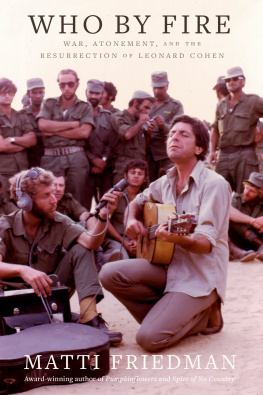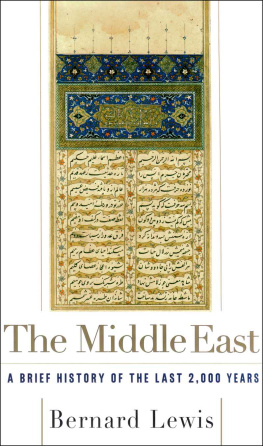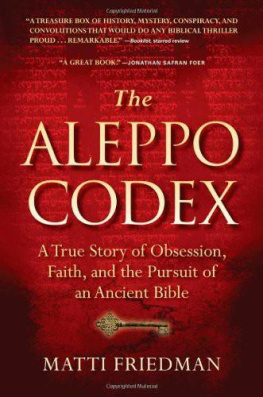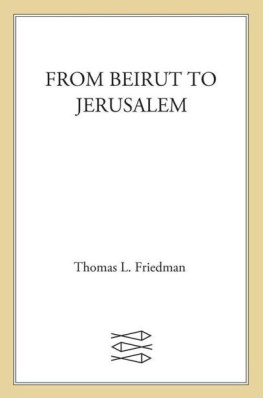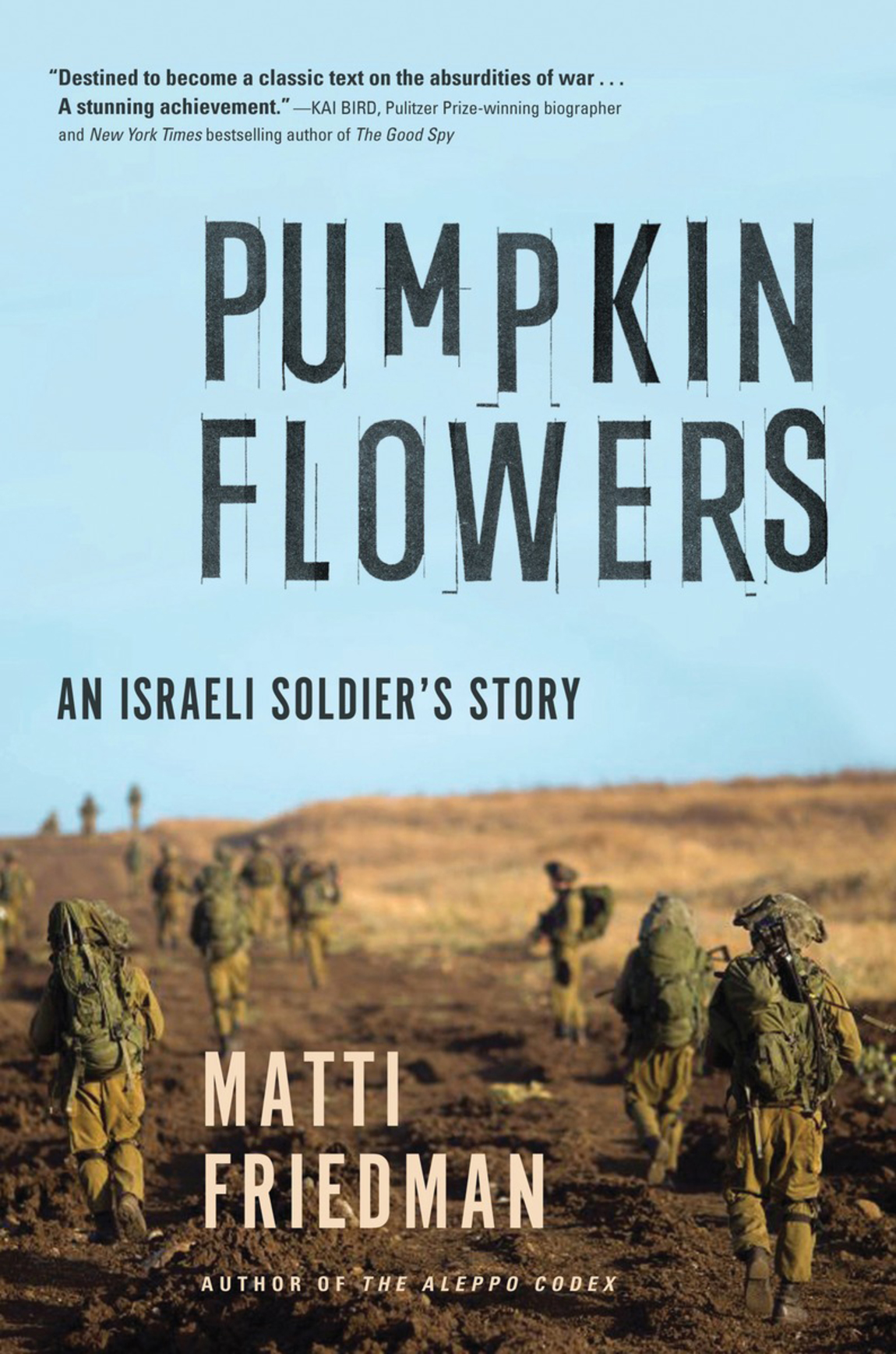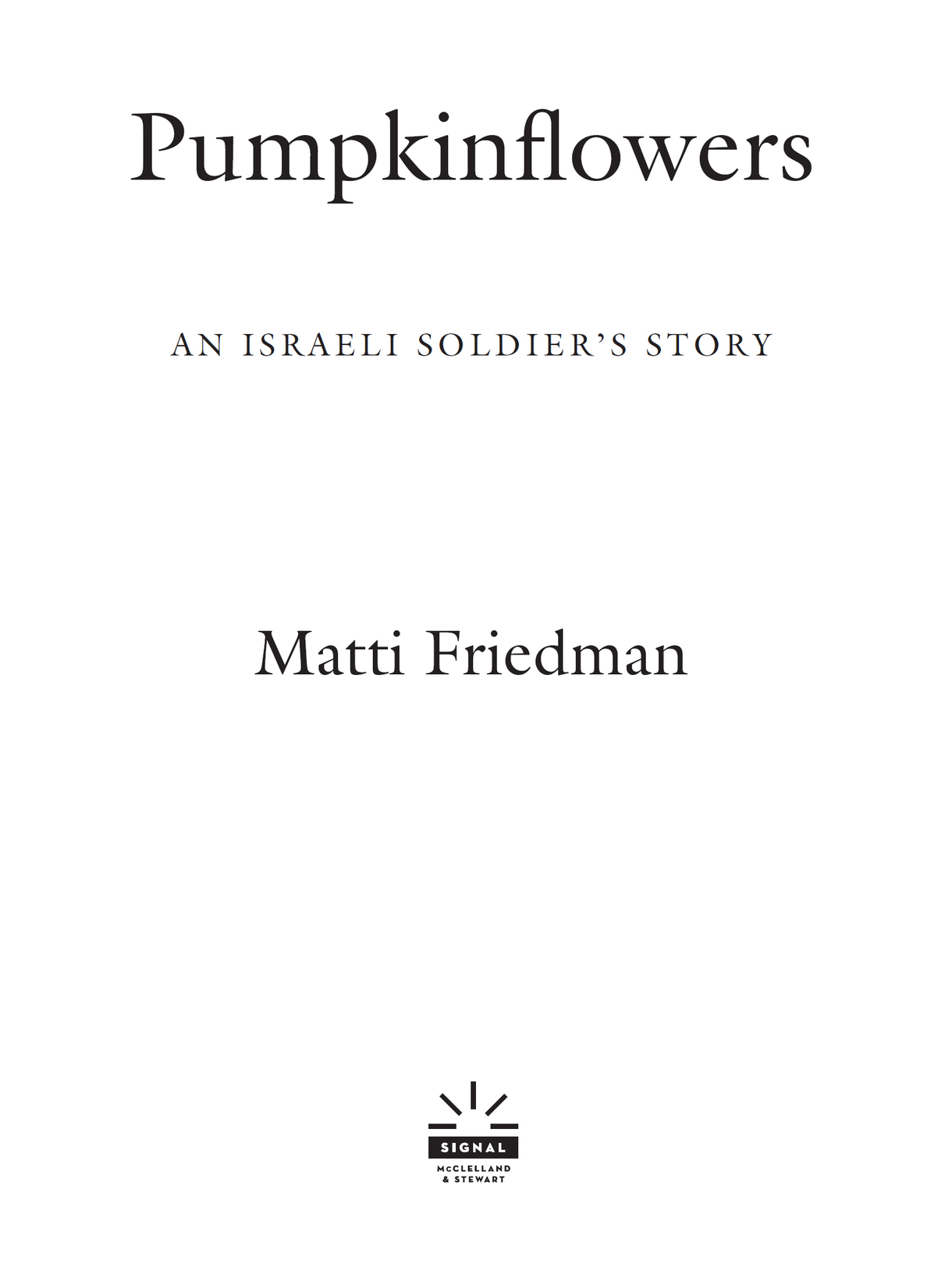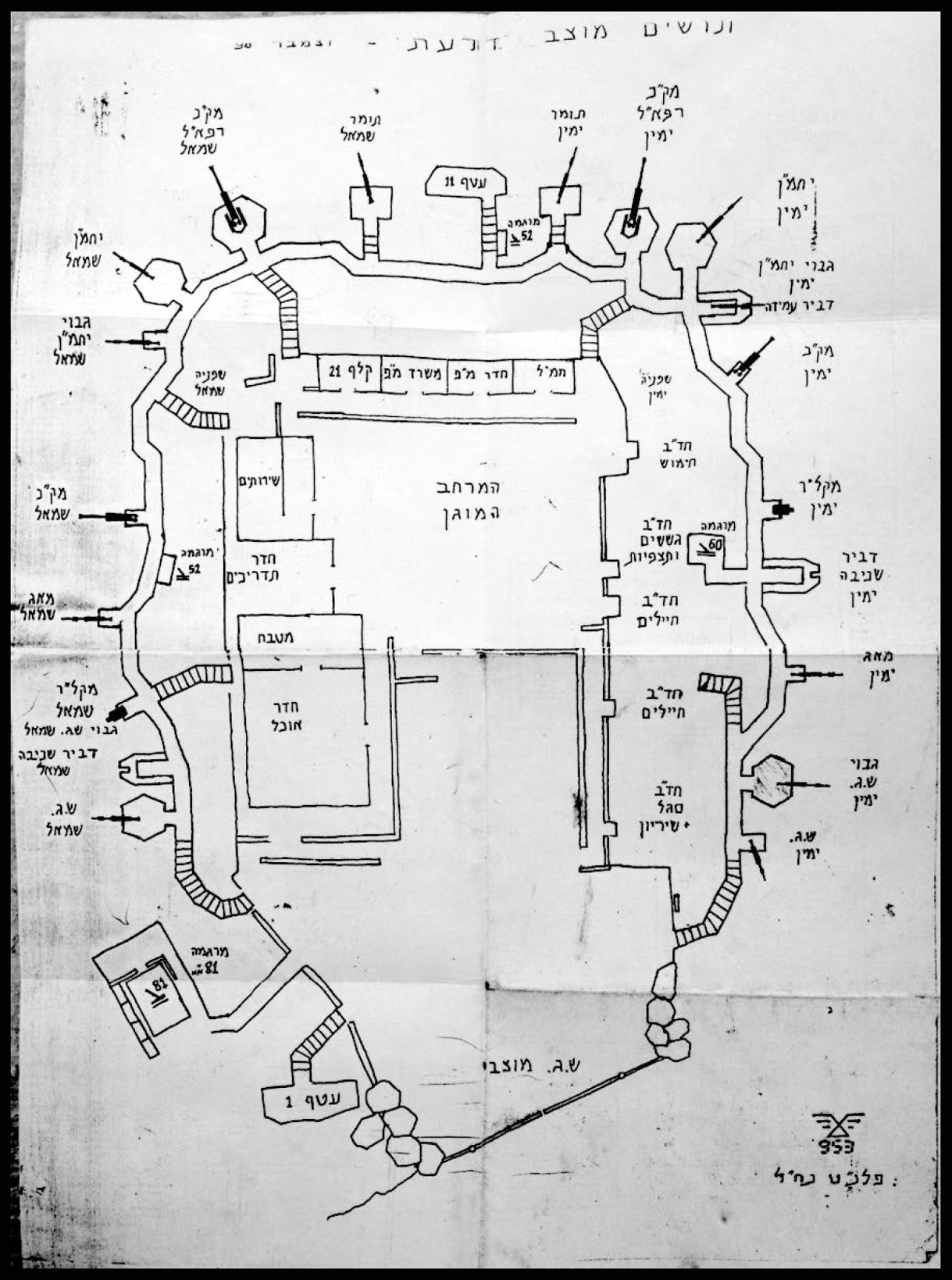Contents
A LSO BY M ATTI F RIEDMAN
The Aleppo Codex: In Pursuit of One of the Worlds
Most Coveted, Sacred, and Mysterious Books
Copyright 2016 Matti Friedman
Hardcover edition published 2016
Signal is an imprint of McClelland & Stewart, a division of Penguin Random House Canada Limited, a Penguin Random House Company
Signal and colophon are registered trademarks of McClelland & Stewart, a division of Penguin Random House Canada Limited, a Penguin Random House Company
All rights reserved. The use of any part of this publication reproduced, transmitted in any form or by any means, electronic, mechanical, photocopying, recording, or otherwise, or stored in a retrieval system, without the prior written consent of the publisher or, in case of photocopying or other reprographic copying, a licence from the Canadian Copyright Licensing Agency is an infringement of the copyright law.
Library and Archives Canada Cataloguing in Publication
Friedman, Matti, author
Pumpkinflowers : an Israeli soldiers story / Matti Friedman.
ISBN 978-0-7710-3690-3 (bound). ISBN 978-0-7710-3691-0 (epub)
1. Friedman, Matti. 2. LebanonHistoryCivil War, 1975-1990Personal narratives, Israeli. I. Title.
DS87.5.F75 2016 956.92044 C2015-907752-4
C2015-907753-2
The excerpt from John Prines Angel from Montgomery appears here with the permission of Alfred Music.
The permission to include part of Beeri Hazaks poem
Lord of the Universe was granted by the authors brother, the poet
Yehiel Hazak. Translation by the author.
Cover design by High Design
Cover photo AP Photo / Ariel Schalit
McClelland & Stewart,
a division of Penguin Random House Canada Limited,
a Penguin Random House Company
www.penguinrandomhouse.ca
v4.1
a
Contents
A map of the Pumpkin distributed to soldiers (1998)
N IGHTS ON THE hill were unusually long. They were inhabited by shadows flitting among boulders, by bushes that assumed human form, by viscous mists that crept in and thickened until all the sentries were blind. Sometimes you took over one of the guard posts, checked your watch an hour later, and found that five minutes had passed.
The enemy specialized in the roadside bomb artfully concealed, in the short barrage, in the rocket threaded through the slit of a guard post. We specialized in waiting. An honest history of this time would consist of several thousand pages of daydreams and disjointed thoughts born of exhaustion and boredom, disrupted only every hundred pages or so by a quick tragedy, and then more waiting.
At night four sentries waited in four guard posts that were never empty. Four crewmen waited in a tank, searching the approaches to the fort. Ambush teams conversed in whispers and passed cookies around in the undergrowth outside, waiting for guerrillas. A pair of soldiers drank coffee from plastic cups in a room of radio sets, waiting for transmissions to come through.
Before the earliest hint of dawn each day someone went around rousing all of those who werent awake already. Groggy creatures dropped from triple-decker bunks, struggled into their gear, and snapped helmet straps under chins. Now everyone was supposed to be ready. Lebanon was dark at first, but soon the sky began to pale through the camouflage net. Sometimes first light would reveal that the river valley had filled with clouds, and then the Pumpkin felt like an island fortress in a sea of mistlike the only place in the world, or like a place not of this world at all. There was a mood of purposefulness at that hour, an intensity of connection among us, a kind of inaudible hum that I now understand was the possibility of death; it was exciting, and part of my brain misses it though other parts know better.
This ritual, the opening act of every day, might have been called Morning Alert or some other forgettable military term, with any unnecessary syllable excised. It might have been shortened, as so much of our language was, to an acronym. But for some reason it was never called anything but Readiness with Dawn. The phrase is as strange in the original Hebrew as in the English. This was, in our grim surroundings, a reminder that things need not be merely utilitarian. It was an example of the poetry that you can find even in an army, if youre looking.
The hour of Readiness with Dawn was intended as an antidote to the inevitable relaxing of our senses, a way of whetting the garrisons dulled attention as the day began. It was said this was the guerrillas preferred time to storm the outpost, but they didnt do that when I was there. I remember standing in the trench as the curtain rose on our surroundings, trying to remember that out there, invisible, was the enemy, but finding my thoughts wandering instead to the landscape materializing at that moment beyond the coils of wire: cliffs and grassy slopes, villages balanced on the sides of mountains, a river flowing beneath us toward the Mediterranean. Things were so quiet that I believe I could hear the hill talking to me. Im not sure I could understand then what it was saying. But now I believe it was What are you doing here? And also Why dont you go home?
That hill is still speaking to me years later. Its voice, to my surprise, has not diminished with the passage of time but has grown louder and more distinct.
This book is about the lives of young people who finished high school and then found themselves in a warin a forgotten little corner of a forgotten little war, but one that has nonetheless reverberated in our lives and in the life of our country and the world since it ended one night in the first spring of the new century. Anyone looking for the origins of the Middle East of today would do well to look closely at these events.
describes my own time on the hill, and the experiences of several of my friends in the outposts last days. The final part recounts my return to Lebanon after these events had ended, in an attempt to understand them better.
Readiness with Dawn ended up being a time for contemplation. Look around: Where are you, and why? Who else is here? Are you ready? Ready for what? So important was this ritual at such an important time in my life that this mode of consciousness became an instinct, the way an infant knows to hold its breath underwater. I still slip into it often. Im there now.
Part One
1
A T AN ENCAMPMENT imposed upon the sand near an empty highway, teenagers lined up in a yard. There were perhaps three hundred of them, and in their floppy sunhats they looked like comical green mushrooms sprouting in rows from the tarmac. The conventions of military writing seem to require that they be described from now on as men. But this would hardly have applied a few days earlier.


